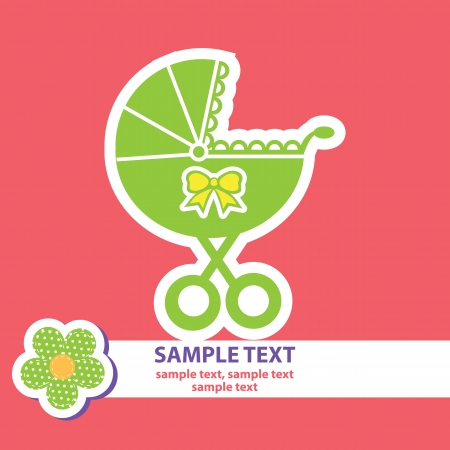Introduction to Co-Sleeping and SIDS
In the UK, co-sleeping is a topic that often sparks thoughtful discussion among parents, health professionals, and child development experts. Co-sleeping generally refers to the practice of parents and infants sharing a sleeping space, which can take several forms. Most commonly, this means either bed-sharing—where the baby sleeps in the same bed as one or both parents—or room-sharing, where the infant sleeps in a separate cot or Moses basket within the parent’s bedroom. Understanding these distinctions is crucial for appreciating how British families approach infant sleep and safety.
Another key concept closely linked to co-sleeping conversations is Sudden Infant Death Syndrome (SIDS), sometimes referred to as “cot death” in the UK. SIDS describes the unexplained and sudden death of an otherwise healthy baby, typically during sleep, and most often affecting infants under one year old. The causes of SIDS remain largely unknown, but extensive research has identified various risk factors—including sleep environment—that can increase or reduce its likelihood. In British culture, awareness campaigns such as “Back to Sleep” (now known as “Safer Sleep”) have played a significant role in shaping parental practices around infant sleep safety.
Definitions at a Glance
| Term | Definition (UK Context) |
|---|---|
| Co-Sleeping | Parents and baby share a sleeping space; includes both bed-sharing and room-sharing. |
| Bed-Sharing | The baby sleeps in the same bed as one or both parents. |
| Room-Sharing | The baby sleeps in their own cot or Moses basket in the same room as parents. |
| SIDS (Sudden Infant Death Syndrome) | The sudden, unexplained death of an apparently healthy infant under 1 year old, usually during sleep. |
This overview sets the stage for a deeper exploration of how cultural attitudes in Britain influence sleep arrangements, alongside an examination of official recommendations designed to protect infants from the risks associated with SIDS.
2. Current UK Guidelines on Safe Sleep
When it comes to infant sleep safety, the UK takes a clear and research-driven approach. Both the NHS (National Health Service) and The Lullaby Trust, a leading charity dedicated to reducing sudden infant death syndrome (SIDS), provide comprehensive guidelines for parents and caregivers. These recommendations emphasise creating a safe sleep environment whether your baby sleeps in their own cot or shares a sleep space with you, reflecting both medical evidence and an understanding of British family life.
Key Recommendations from NHS and The Lullaby Trust
| Guideline | NHS | The Lullaby Trust |
|---|---|---|
| Room-sharing | Advocates keeping your baby in the same room as you for at least the first 6 months | Strongly encourages room-sharing but not bed-sharing for newborns |
| Co-sleeping (bed-sharing) | Not recommended if either parent smokes, has consumed alcohol/drugs, or is extremely tired; highlights increased risk factors | Discourages co-sleeping under similar risk circumstances; provides detailed advice for parents who choose to co-sleep |
| Sleep position | Always place baby on their back to sleep | Emphasises supine (back) sleeping as critical for SIDS prevention |
| Bedding & Sleep surface | Use a firm, flat mattress with no soft bedding, pillows, or toys around the baby | Recommends a clear, clutter-free cot or sleep space |
Cultural Context in the UK
The UKs guidance is shaped by both scientific research and the realities of family life. While traditional British parenting has often favoured separate sleeping spaces—such as Moses baskets or cots beside the parental bed—recent years have seen more open discussions around co-sleeping, especially among breastfeeding families. The NHS and The Lullaby Trust acknowledge that some parents will choose to co-sleep, whether intentionally or due to exhaustion during night feeds. Their advice balances caution with practical support: rather than simply saying “never co-sleep,” they offer nuanced steps to reduce risks if parents make this choice.
Practical Advice for Parents
If you are considering co-sleeping, both organisations stress making informed choices. This means understanding when co-sleeping is particularly dangerous—such as on sofas, after drinking alcohol, or if anyone in the home smokes—and taking steps to create as safe an environment as possible. Ultimately, the UK approach is about respecting parental instincts while empowering families with knowledge, helping every child get the best start in life.

3. Cultural Views on Co-Sleeping in the UK
Co-sleeping is a topic that evokes a range of opinions across the UK, shaped by both historical practices and contemporary guidance. British attitudes towards co-sleeping have evolved over time, reflecting shifts in parenting philosophies, healthcare recommendations, and cultural norms. While some families view co-sleeping as a nurturing way to foster closeness and bonding with their baby, others see it as a practice best avoided due to safety concerns and modern advice.
Generational Differences
The approach to co-sleeping often varies significantly between generations. Older generations in the UK may recall a time when babies frequently slept in the same bed as their parents, especially in families where space was limited or where it was culturally accepted as part of child-rearing. In contrast, many younger parents are more likely to be influenced by current NHS guidelines and public health campaigns that caution against bed-sharing due to the associated risks of Sudden Infant Death Syndrome (SIDS).
Comparing Generational Perspectives
| Generation | Attitude Towards Co-Sleeping |
|---|---|
| Grandparents (60+) | More open or neutral; often experienced co-sleeping themselves |
| Parents (30-50) | Cautious; influenced by official guidance, but some embrace safe co-sleeping |
| Younger Parents (<30) | Tend to follow health advice closely; less likely to co-sleep |
Regional Variations
The cultural landscape of the UK is diverse, and regional differences further influence how co-sleeping is perceived and practised. For example, families in rural areas of Scotland or Wales may be more inclined towards traditional practices, including co-sleeping, compared to urban centres like London or Manchester where adherence to formal guidelines might be stronger. Socioeconomic factors also play a role; households with limited living space may find co-sleeping a practical necessity rather than a deliberate choice.
Summary Table: Regional Attitudes
| Region | Tendency Towards Co-Sleeping |
|---|---|
| Urban England (e.g., London) | Less common; greater emphasis on separate sleeping spaces |
| Rural Scotland/Wales | More common; traditional views persist |
| Northern Ireland | Mixed practices; influenced by both tradition and public health messages |
This rich tapestry of generational and regional perspectives illustrates why conversations about co-sleeping in the UK are nuanced. Understanding these diverse views helps parents make informed choices while respecting both cultural heritage and contemporary safety advice.
4. Practical Safety Tips for Parents
Ensuring your baby sleeps safely is a key concern for UK parents, especially given the evidence linking sleep environments to SIDS (Sudden Infant Death Syndrome). The following practical tips are grounded in research and tailored to British homes, acknowledging both official recommendations and common cultural practices like co-sleeping.
Safe Sleep Environment Essentials
| Tip | Evidence-Based Rationale | Cultural Consideration |
|---|---|---|
| Always place your baby on their back to sleep | Reduces SIDS risk according to NHS and Lullaby Trust guidance | This advice holds regardless of where your baby sleeps—cot, crib, or bed-sharing arrangements |
| Keep the sleep space clear of pillows, toys, and loose bedding | Minimises suffocation hazards; supported by NICE guidelines | Bedding preferences in the UK may favour duvets; use only a firm, flat mattress with a fitted sheet for babies |
| Share a room, not a bed (for at least 6 months) | Room-sharing lowers SIDS risk while allowing easy access for night feeds | Many British families find bedside cribs or Moses baskets suit small living spaces |
| Avoid smoking around your baby and keep the environment smoke-free | Tobacco exposure is a major SIDS risk factor per Public Health England | This includes vaping indoors—a growing concern in UK households |
| Avoid overheating—keep room temperature between 16-20°C | Overheating increases SIDS risk; use a room thermometer if unsure | Central heating can make rooms warm; dress babies in lightweight layers as needed |
| If you choose to co-sleep, follow safer bed-sharing guidance | Lullaby Trust provides specific advice to reduce risks when bed-sharing is chosen or necessary (e.g. during breastfeeding) | This includes never co-sleeping on sofas or armchairs, avoiding alcohol and sedatives, and ensuring no gaps where baby could get trapped |
Additional Tips for Night Feeds and Settling
- Night lights: Use soft, dim lighting for night feeds to avoid fully waking your baby or yourself.
- No heavy bedding: Traditional heavy blankets or quilts are not recommended for infants under one year.
- Create calm routines: Gentle lullabies or quiet time before bed can help establish positive sleep associations without relying on props in the cot or bed.
- Monitor for changes: If your baby is unwell, premature, or was low birth weight, take extra precautions and consult your health visitor.
The Importance of Family Dialogue and Support Networks
Cultural norms often influence sleep decisions. In many UK families, grandparents or extended relatives may have different experiences or advice. Open conversations about current safety guidelines help bridge generational gaps and ensure everyone caring for the baby is informed. Access support from local health visitors, parenting groups, or organisations like the Lullaby Trust if you need reassurance or personalised guidance.
5. The Role of Parent-Infant Relationship in Sleep Choices
When considering sleep arrangements such as co-sleeping, the parent-infant relationship is a vital factor that often shapes family decisions. In the UK, families must navigate guidance on safe sleeping practices while balancing their natural inclination to foster emotional bonding and psychological development through close contact. Research in developmental psychology consistently highlights that responsive parenting—being attuned to an infant’s cues, especially at night—supports secure attachment and emotional regulation. For many parents, co-sleeping feels like an instinctive way to offer comfort, warmth, and reassurance during critical stages of early development.
However, official recommendations from organisations such as the NHS and Lullaby Trust urge parents to place babies on their backs in a separate cot or Moses basket in the same room for the first six months to reduce SIDS risk. This advice can sometimes feel at odds with cultural practices or personal beliefs about nurturing attachment through physical closeness at night. Family routines also play a role; some households may find solo sleeping more manageable due to work schedules or living arrangements, while others value the flexibility and connection that co-sleeping can provide.
How Bonding and Routines Intersect with Safe Sleep
| Aspect | Co-Sleeping | Separate Sleeping |
|---|---|---|
| Bonding | Promotes skin-to-skin contact and responsiveness | Can maintain bonding through daytime routines and responsive care |
| Psychological Development | May support emotional security if practised safely | Encourages self-soothing skills within secure boundaries |
| UK Guidelines | Discourage bed-sharing for newborns (especially under 6 months) | Advocate same-room but separate-surface sleeping |
Cultural Perspectives in the UK Context
The UK reflects a mix of traditions—some families draw from multicultural backgrounds where co-sleeping is common practice, while others adhere strictly to official guidance. Open dialogue between health professionals and parents helps bridge this gap, acknowledging the importance of both safety and relational needs. Ultimately, every family must weigh these factors: psychological development, attachment needs, and daily routines against the backdrop of current evidence-based recommendations for infant sleep safety.
6. Challenges and Controversies
Co-sleeping remains a complex and often contentious topic within UK society, particularly when considering its relationship with SIDS (Sudden Infant Death Syndrome). While some families cherish co-sleeping as a way to strengthen parent-child bonds and support infant emotional development, concerns persist regarding safety, cultural expectations, and differing interpretations of the available evidence.
Common Concerns in the UK
| Concern | Description |
|---|---|
| Infant Safety | Many parents worry about increased risk of SIDS or accidental suffocation during co-sleeping, especially if either adult is a smoker or has consumed alcohol. |
| Cultural Pressure | Some families feel judged by healthcare professionals or peers for their choice to co-sleep, while others feel pressured to adopt solitary sleep despite personal or cultural preferences. |
| Misinformation | There is widespread confusion regarding what constitutes ‘safe’ co-sleeping versus hazardous practices, leading to uncertainty in parental decision-making. |
Misunderstandings and Debates
The debate surrounding co-sleeping in the UK is fuelled by misunderstandings about the causes of SIDS and the influence of environmental factors. Some believe that all forms of bed-sharing are inherently risky, while others argue that with appropriate precautions, risks can be minimised. The diversity of advice from various sources—including health visitors, midwives, online forums, and family elders—can leave parents feeling conflicted or anxious.
Cultural Perspectives vs. Official Guidance
The UK is home to a wide range of cultural backgrounds, each with unique traditions regarding infant sleep. For example, South Asian communities may have longstanding practices of family bed-sharing, whereas mainstream NHS guidance emphasises keeping babies in their own sleep space within the parent’s room. Balancing respect for cultural heritage with evidence-based safety recommendations is an ongoing challenge for both parents and professionals.
Navigating the Complexities
Ultimately, supporting UK families means acknowledging these challenges and offering nuanced advice. Parents benefit from clear information that addresses both emotional needs and practical safety concerns, empowering them to make informed decisions. Honest discussions between families and healthcare providers can help bridge gaps in understanding and promote safer sleep practices tailored to individual circumstances.


